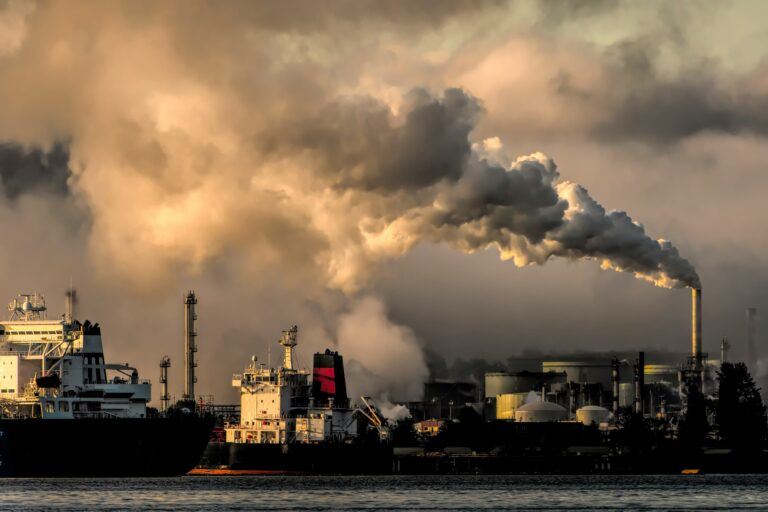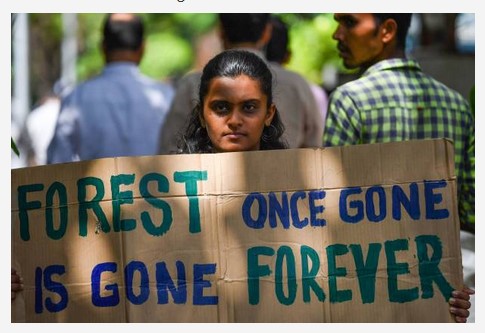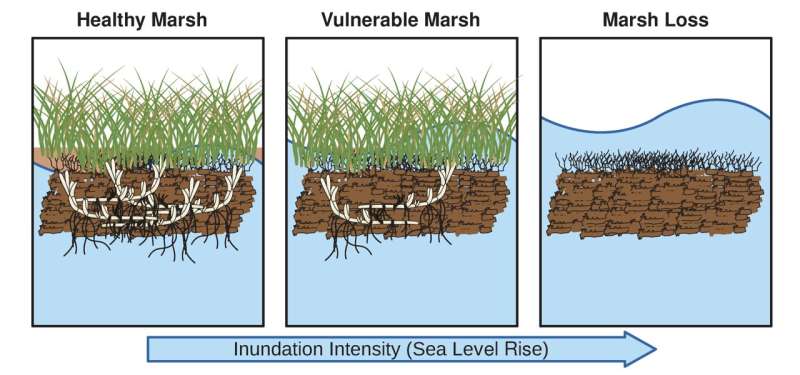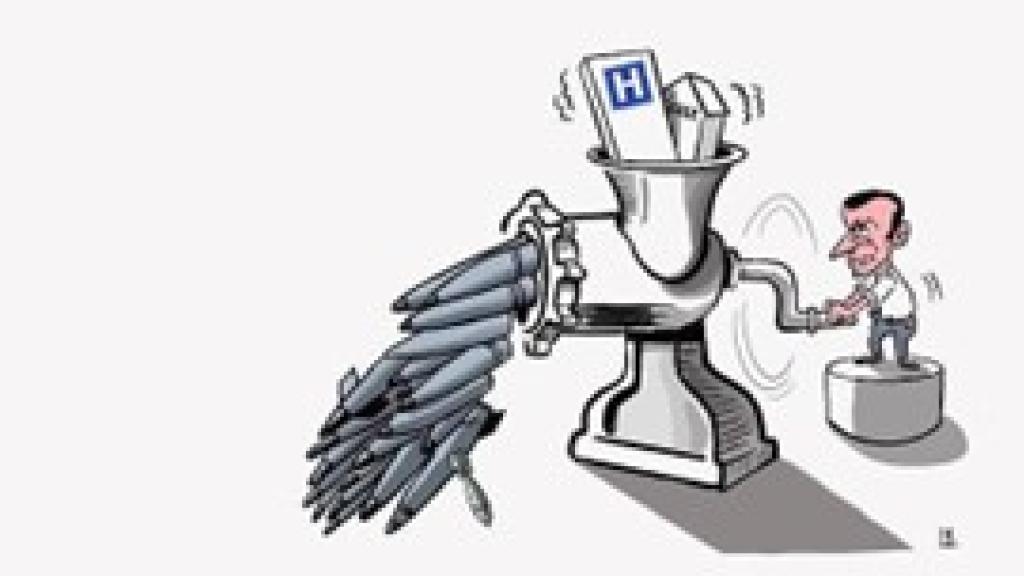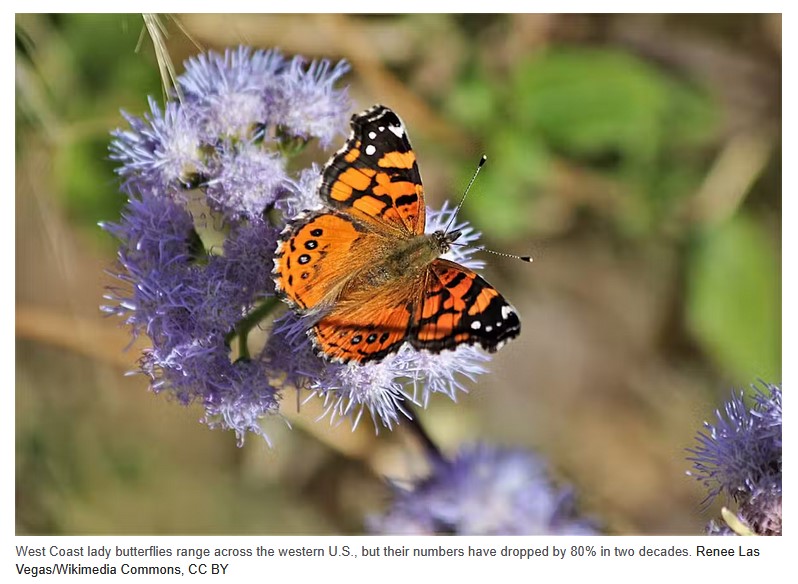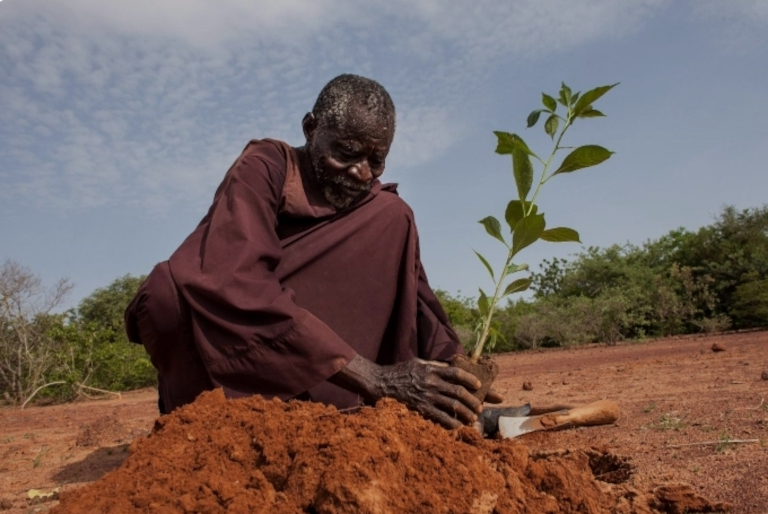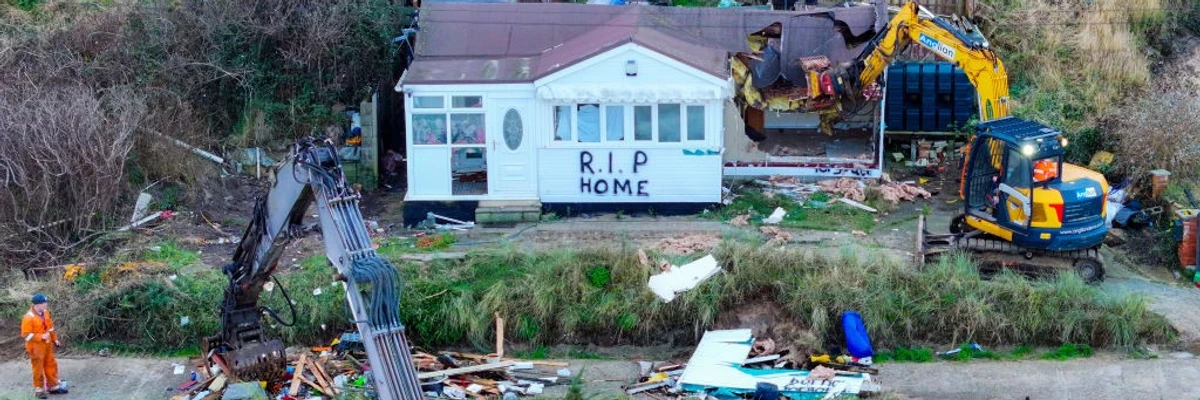Category: Biodiversity / Biodevastation
-

NATO’s Depleted Uranium: The Health Consequences of Freedom and Democracy in Iraq, Libya and the Former Yugoslavia
Essam Elkorghli brings to the fore the silenced debilitating, malignant, and acute health consequences of NATO interventions due to its use of depleted uranium on the peoples who are bombed.
-

Mutant Rice and Lab Rats: Bill Gates Sparks Outrage After Referring to India as ‘Testing Ground’ for Experiments
In late 2024, Bill Gates sparked outrage in India after describing the country as “a kind of laboratory to try things” during a podcast with Reid Hoffman. Gates emphasised the nation’s stability as a “testing ground” for global initiatives. The controversy resurfaced with the 5 May 2025 announcement that India became the first country to…
-

Absurd (Scary) CO2 Emissions
In a major blow to the Paris ’15 climate agreement, last year witnessed one more nail in the coffin of the celebrated agreement to slow down CO2 emissions by 2030, as CO2, for the first time in modern history, enters the scientifically established danger zone. This agreement was/is meant to curtail global warming and hopefully…
-

Climate Change and Deforestation: A Dangerous Warning
In the face of global warming, trees remain the sole natural source of oxygen, shielding us from the dangers posed by urban concrete jungles. Their role is even more critical in ecologically and archaeologically sensitive zones. In such a scenario, policymakers must question how permission was granted to cut trees in sensitive zones. In this…
-

Protected: Modeling study finds early signs of widespread coastal marsh decline
There is no excerpt because this is a protected post.
-

From welfare to warfare: military Keynesianism
Warmongering has reached fever pitch in Europe. It all started with the US under Trump deciding that paying for the military ‘protection’ of European capitals from potential enemies was not worth it. Trump wants to stop the US paying for the bulk of the financing of NATO and providing its military might and he wants…
-

Butterflies declined by 22% in just 2 decades across the US – there are ways you can help save them
If the joy of seeing butterflies seems increasingly rare these days, it isn’t your imagination. From 2000 to 2020, the number of butterflies fell by 22% across the continental United States. That’s 1 in 5 butterflies lost. The findings are from an analysis just published in the journal Science by the U.S. Geological Survey’s Powell…
-

Algeria: Decolonizing the Mind, Liberating Water, Inventing the Future
One of the most devastating legacies of colonial-era management is the systematic drainage of rainwater toward the seas and deserts. Even in arid areas where every drop is precious, rainwater is funneled into storm drains, lost forever. This practice reflects a mindset that sees rain not as a blessing to be preserved, but as a…
-

Diquat herbicide poisons the gut, may severely damage other organs, research shows
Diquat, an herbicide banned in the European Union but still widely used in the U.S., damages the intestines and may also trigger a harmful chain reaction in the rest of the body—injuring the liver, kidney, and lungs, according to a new review of more than 100 studies. The herbicide has traditionally been studied for its…
-

Rising Seas From Fossil Fuels Threaten Inland Migration ‘Never Witnessed in Modern Civilization’
With governments “scaling back their already meager” actions to tackle climate breakdown, said one ecologist, “our present-day human culture is on a suicide course.”



